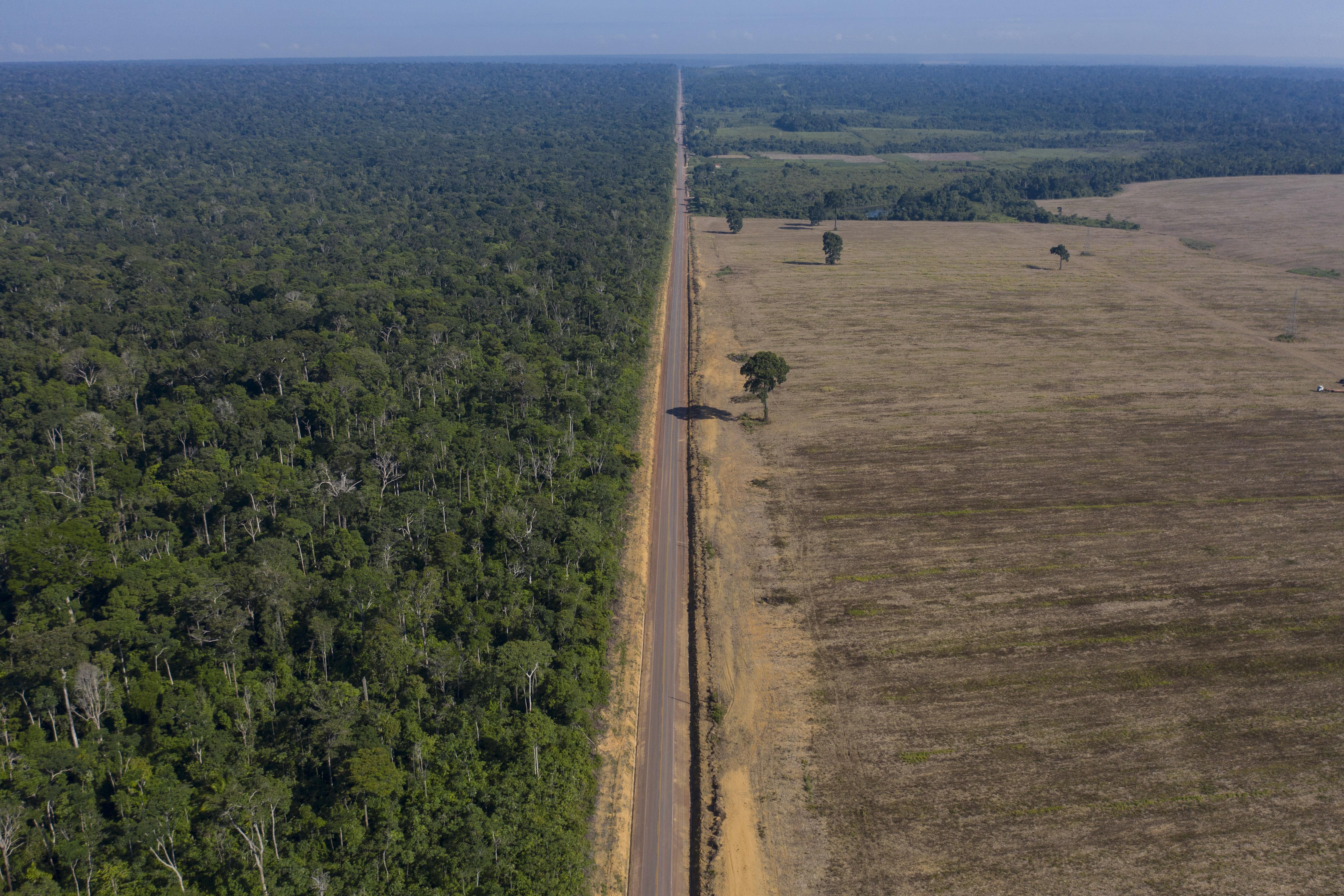 Highway BR-163 stretches between the Tapajos National Forest (left) and a soy field in Belterra, Para state, Brazil, on Nov 25, 2019. (PHOTO / AP)
Highway BR-163 stretches between the Tapajos National Forest (left) and a soy field in Belterra, Para state, Brazil, on Nov 25, 2019. (PHOTO / AP)
The world lost an area of old-growth tropical rainforest the size of Switzerland last year, as deforestation of the Brazilian Amazon continued, according to a forest monitoring project report released on Tuesday.
Global Forest Watch, which is backed by the nonprofit World Resources Institute (WRI) and draws on forest data collected by the University of Maryland, revealed that about 41,000 sq km of tropical rainforest was lost in 2022.
That was the final year of Jair Bolsonaro's government in Brazil, which accounted for more than 40 percent of all losses.
Global Forest Watch assessed 'primary forests', which includes mature forests that have not been cleared or regrown in recent history. Such forests protect against climate change because they absorb vast amounts of carbon dioxide
Despite a recent global pledge to reach zero deforestation by 2030, tropical forest loss last year exceeded 2021 levels.
"2022 numbers are particularly disheartening," said Francis Seymour, a WRI official. "We had hoped by now to see a signal in the data that we were turning the corner on forest loss."
ALSO READ: Study: 76.8% of corals could be ill by 2100 due to climate change
Global Forest Watch assessed 'primary forests', which includes mature forests that have not been cleared or regrown in recent history.
Such forests protect against climate change because they absorb vast amounts of carbon dioxide. Last year's losses in the tropics released some 2.7 gigatons of carbon dioxide, equivalent to India's annual fossil fuel emissions, according to the report.
Indonesia and Malaysia managed to keep forest loss near a record low, continuing a multiyear streak of stamping down deforestation driven by oil palm plantations.
ALSO READ: China's largest freshwater lake sees rising water level
Strict Indonesian policies, such as a moratorium on new licenses in primary forest and peatland, helped the turnabout.
Other forest-rich nations have struggled to keep up with Asia's progress. The Democratic Republic of the Congo and Bolivia suffered the greatest losses of tropical forest after Brazil.
The Global Forest Watch analysis found deforestation in 2022 was more than 10,000 sq km in excess of what would be needed to halt it by 2030.
READ MORE: Cool ideas vital to coping with heat waves
"We are far off track and trending in the wrong direction," said Rod Taylor, WRI's global forests program director.
The world lost 10 percent less forest in 2022 than 2021, as fewer big fires burned in the Russian boreal forest, though the country still lost 43,000 sq km of tree cover last year.


